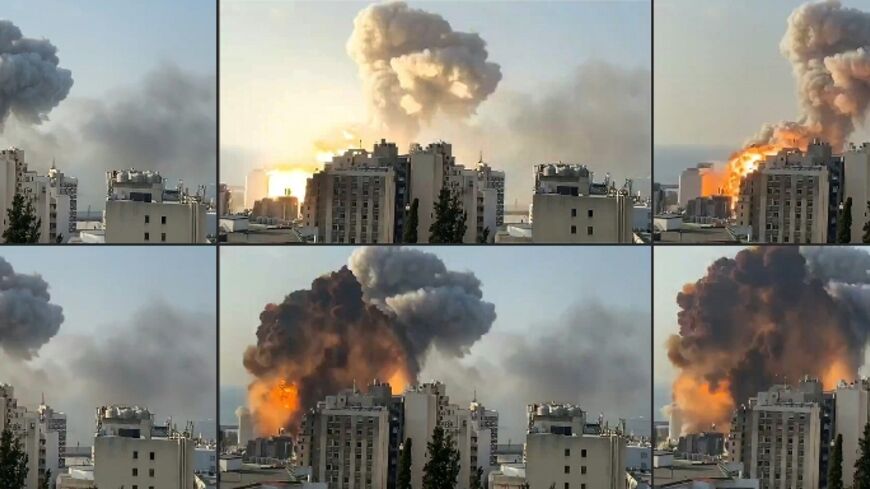Lebanon top prosecutor, judges charged over Beirut blast: official

The Lebanese judge probing the devastating Beirut port blast has charged Prosecutor General Ghassan Oueidat and three judges, a first in the country's history, a judicial official told AFP on Tuesday.
Judge Tarek Bitar decided Monday to resume his probe into the deadly August 2020 mega-explosion despite strong political pressure that had led to a suspension of his work for more than a year.
On Tuesday, he charged eight more figures, including Lebanon's top prosecutor Oueidat and the three judges, with "homicide, arson and sabotage", said the judicial official who spoke to AFP on condition of anonymity.
One of history's biggest non-nuclear explosions destroyed most of Beirut port and surrounding areas on August 4, 2020, killing more than 215 people and injuring over 6,500.
The blast was caused by a fire in a warehouse where a vast stockpile of the industrial chemical ammonium nitrate had been haphazardly stored for years, authorities said.
According to the judicial official, Oueidat had in 2019 overseen a security services investigation into cracks in the warehouse where the ammonium nitrate was stored.
In total, 13 people are being prosecuted, including five officials whom Bitar indicted earlier, among them former prime minister Hassan Diab and former ministers.
Relatives of the dead have been holding monthly vigils ever since the disaster, seeking justice and accountability.
Many families have placed their hopes in Bitar, who has however faced legal challenges, delays and strong resistance from the powerful Shiite Muslim movement Hezbollah and its allies who accuse him of political bias.
Iran-backed Hezbollah and its ally Amal called for demonstrations to demand his dismissal in October 2021, when a gun battle broke out at a Beirut rally and seven people were killed.
Reopening the case Monday after a 13-month suspension, Bitar charged an initial eight suspects, including General Security head Abbas Ibrahim and State Security agency chief Tony Saliba, and released five others.
In Lebanon, state institutions have been reluctant to cooperate with the domestic probe, which began the same month as the explosion.
In February 2021, Bitar's predecessor as lead judge was removed from the case after he had charged high-level politicians.
The interior ministry has also failed to execute arrest warrants issued by Bitar, further undermining his quest for accountability.






